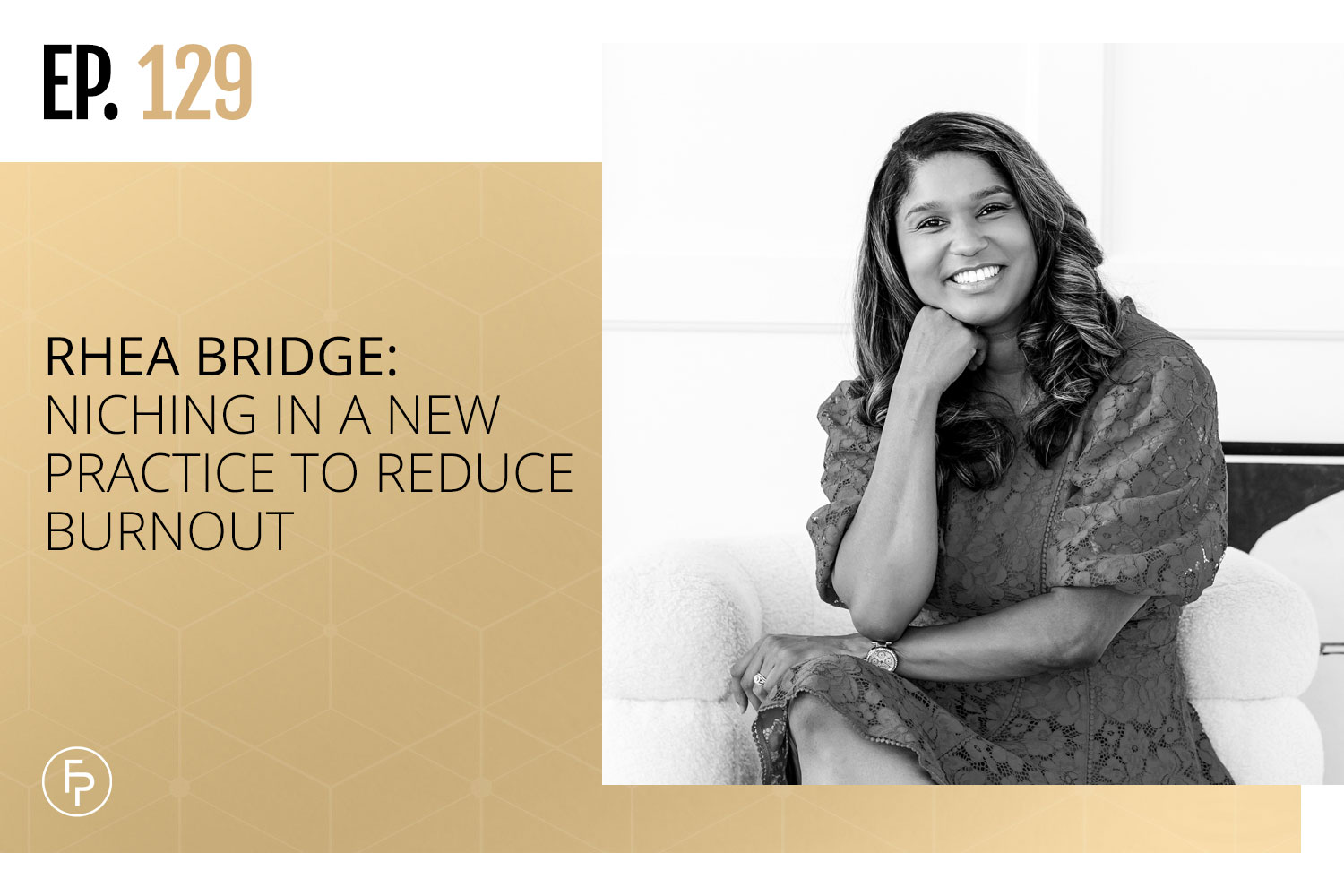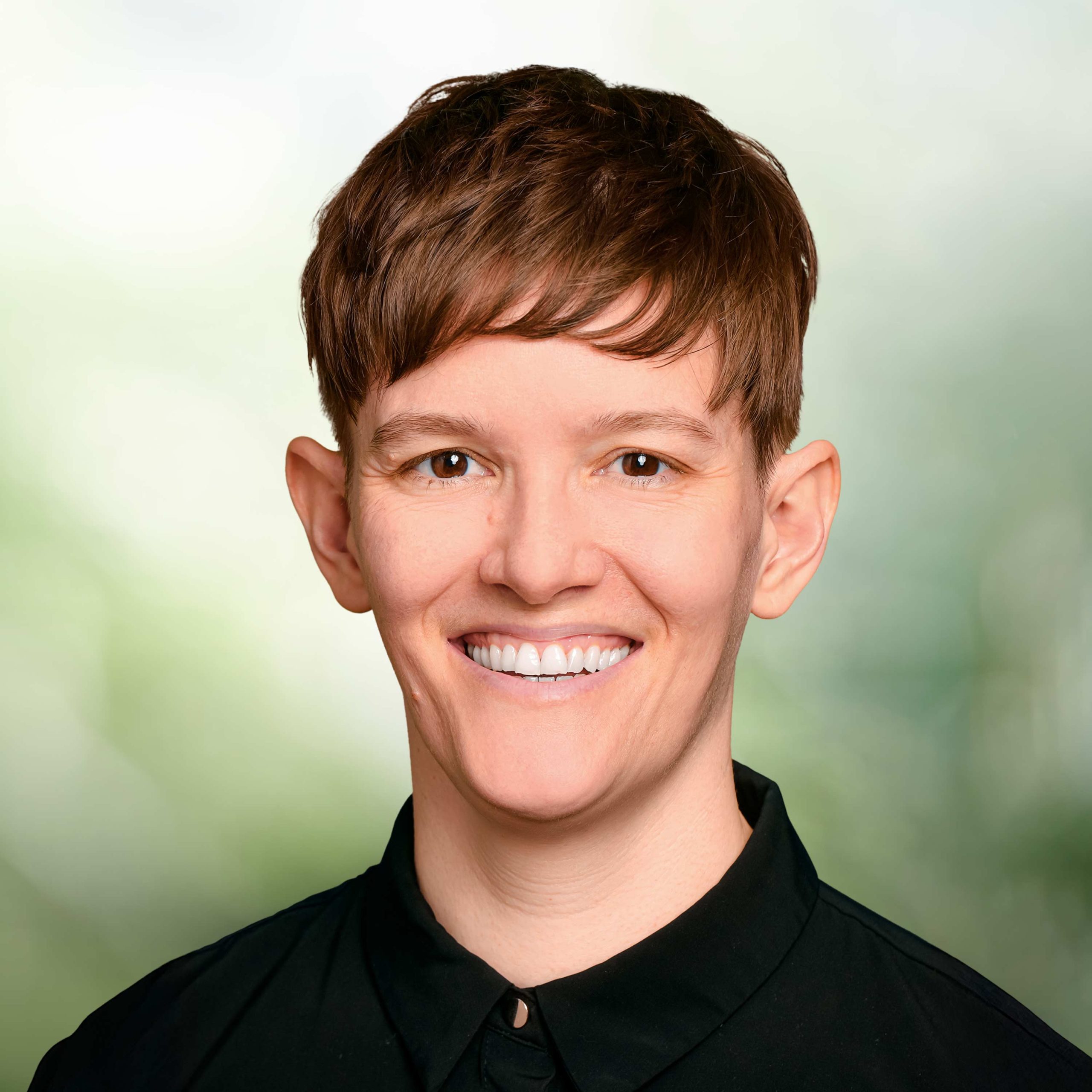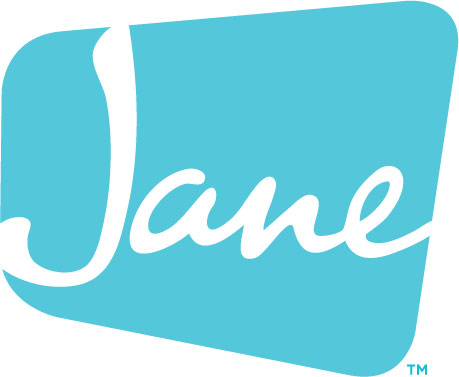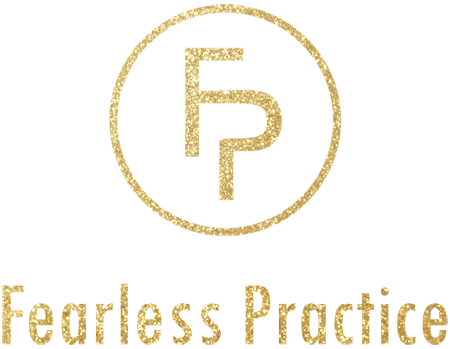RHEA BRIDGE: NICHING IN A NEW PRACTICE TO REDUCE BURNOUT | EP 129

In the beginning of starting a new practice, being a generalist seems like a good idea, especially when you want to welcome clients through the door and the idea of turning away new potential clients seems counterintuitive.
However, niching down is not only helpful regarding your marketing or your skill set: niching down is also important for you! Working with your ideal clients and spending time with the community that you feel inspired to work with fulfills you, and helps you to enjoy your everyday work instead of feeling unnecessarily drained.
In this podcast episode, I chat with Rhea, who started her virtual Canadian private practice after graduating, and who has built her success around focusing on her ideal clients and in the future hopes to build connections with her community, of both clients and therapists.
Jane is an all-in-one health and wellness practice management platform designed to be helpful to you, no matter how or where you practice. Available online and on any device, Jane offers branded online booking, beautiful scheduling, insurance management, customizable charting, online intake forms, patient reminders, integrated payment processing, online appointments (telehealth) and more! Use the code FEARLESS at signup to receive your first month completely free!
MEET RHEA
Rhea is a Registered Psychotherapist in Ontario, mom of 2 and business owner. Her practice is focused on mood and anxiety disorders, life transitions, BIPOC and cultural issues, as well as the perinatal period.

Learn more about Rhea on her website, Instagram, and Psychology Today profiles.
In This Episode
- How Rhea developed her career in therapy
- Starting a solo practice
- Marketing the practice
- Overcoming issues
- Thinking on the future
How Rhea developed her career in therapy
In Rhea’s previous work life she was working with clients with autism. She ended up leaving the field, and wasn’t sure what to do.
When she was working with patients with autism, she did feel like she wanted to do more for them but felt constrained by the role that she was employed under.
‘I was interacting with families and parents and just kind of feeling like, “There’s more to be done here!” and I couldn’t do more.’ – Rhea Bridge
So, after Rhea left that job, she took some time to think about what she wanted to do and considered the things that she enjoyed doing to shift these passions into a career. She ended up finding a masters program that enabled her to unite her interests with counselling in a way that she was excited about.
‘I dove into that! I did the program for a couple of years and through that time I was pregnant, had a baby, did practicum while I was nursing an eight month old, there was a lot going on! But I did it through the schooling and I think I found myself in a good position where I felt prepared to really jump into the therapy space.’ – Rhea Bridge
Starting her solo practice
Rhea went back and forth for a while about whether or not she wanted to start a practice.
‘I said, “Why shouldn’t I? Give me one good reason why I shouldn’t”, and I could not come up with a reason, so I said, “You know what? Let’s jump! Let’s be brave, let’s try something new!” For me, for my kids, I always hope to show them [that] … you can be scared [and] you can still do the thing that you want to do, and be a little uncomfortable while hopefully still be successful while doing that thing.’ – Rhea Bridge
So, even though Rhea was uncomfortable and a little scared about the unknown, she started exploring what she needed to do to set up a new practice. She started looking for only a few clients in the beginning to get a feel of what it would be like.
‘The intention was just to stretch my wings a little bit, build confidence in not only running a business but also my clinical skills, and learning as I went and also obviously having the support of a supervisor as well.’ – Rhea Bridge
Rhea worked part-time and had some financial support from her husband while she was launching her practice, both of which helped her to navigate the uncertainties in the beginning before her practice was more fully established.
Marketing the practice
Rhea launched a Psychology Today profile for herself and her practice to advertise herself and her business.
She also opened up accounts on a few other free platforms where clients often may search for therapists, as well as launching a small Instagram account which has grown and has enabled a few clients to find her and her Rhea to connect with other therapists.
Within her community, Rhea’s practice is starting to gain some traction by word-of-mouth as well.
‘So I think it’s just being patient, for me was the thing, and understanding that [there’s] an ebb and flow, sometimes you get a lot of enquiries and sometimes you don’t get any … Also remembering that not all referrals are going to be the best fit for you.’ – Rhea Bridge
Overcoming issues
For Rhea, a common problem that she is working on resolving is the issue of scheduling, and of finding a time that works well for her and for clients to have a session.
‘That is something I am always reevaluating and always trying to tweak.’ – Rhea Bridge
Additionally, niching was something that Rhea had to work on and to find the right fit. Once she niched down, things became easier.
‘I feel like it’s less stressful for me. This feels better, this feels like I’m making more of a difference. This feels like it suits me and my practice and where my skill set is … [because] being a total generalist was not working for me.’ – Rhea Bridge
A powerful bonus of working within your niche and within your skill set and with the clients that you want to work with also reduces your risk of burnout, because then you are not pushing yourself to weekly see clients that feel challenging or unfulfilling to work with. Remember, it’s okay for you as a therapist to choose to work with your ideal clients.
Thinking on the future
Rhea is focused on making more connections in her community within the next six months to a year. Having one or two specific goals can help you to figure out your direction, even if you don’t know exactly how long it may take.
Connect With Me
Resources Mentioned and Useful Links:
Ep 128: Christina Page: Transitioning from Agency to Private Practice | EP 128
Learn more about the tools and deals that I love and use for my Canadian private practice
Sign up for my free e-course on How to Start an Online Canadian Private Practice
Jane App (use code FEARLESS for one month free)
Learn more about Rhea on her website, Instagram, and Psychology Today profiles
Rate, review, and subscribe to this podcast on Apple Podcasts, Google Podcasts, Spotify, Amazon, and TuneIn


About Jules Smith
Jules Smith, MEd, RCT, CCC is a registered Counselling Therapist who owns a group private practice in Halifax, Nova Scotia. They are also the owner of Fearless Practice Consulting and hosts the Fearless Practice podcast. Through the Fearless Practice podcast, they provide invaluable insights and practical advice on starting and growing a successful Canadian private practice.
Jules also has written articles for the Canadian Counselling and Psychotherapy association. You can learn more at www.ccpa-accp.ca/blog/.


